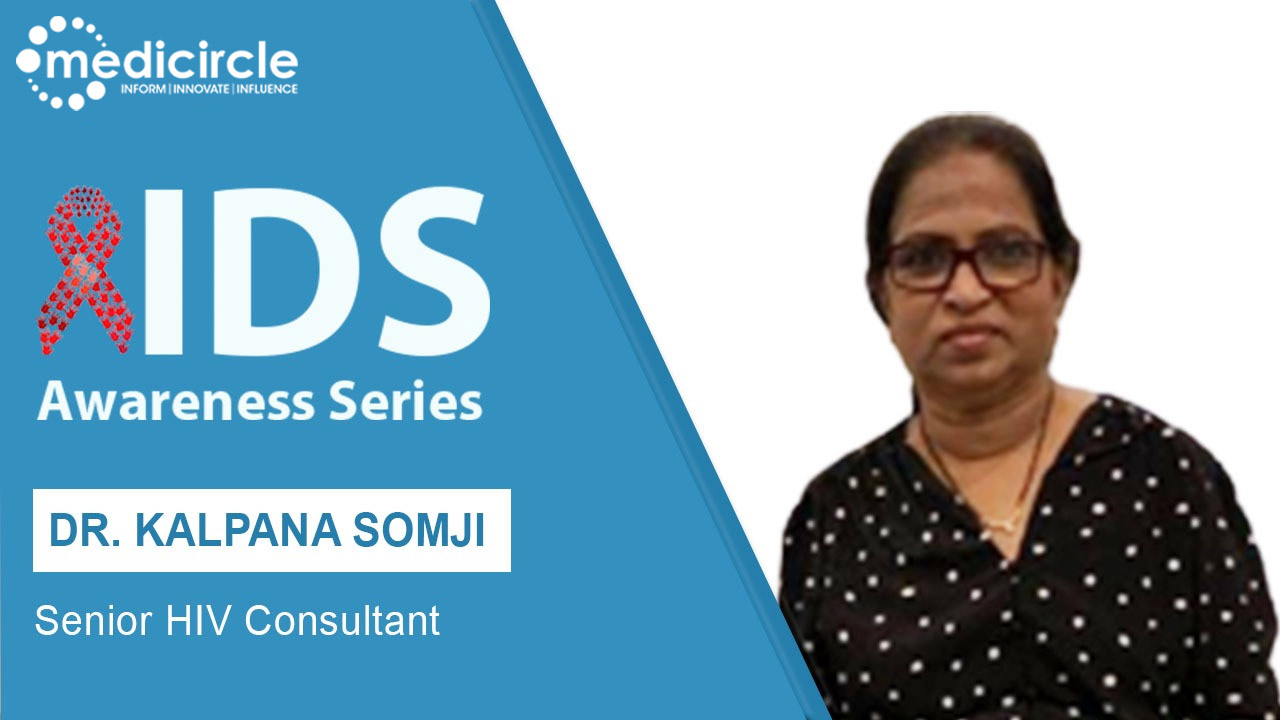Dr. Kalpana Somji is an HIV Consultant in Mumbai and has over 20 years of experience in this field. She completed her MBBS from Grant Medical College in 1982 and her Post-Graduate Diploma in HIV Medicine at B. J Medical College, Ahmedabad. She is been practising in Shanti Avedna Bandra.
What is AIDS?
Dr. Somji begins, “AIDS is Acquired immune deficiency syndrome. As the name suggests it is acquired. It originates outside and then enters the body. The ‘immune deficiency’ part highlight that it decreases the body’s immunity power. It is called a ‘syndrome’ as more than 2 diseases are co-existing in the body. This is caused by the HIV virus. When the HIV virus enters the body, we call the person HIV infected or HIV positive. Only an HIV-positive person will have AIDS. When the body’s immunity is low, many infections enter the body and co-exist. When this disease advances we call it AIDS.”
“When the HIV virus enters the body it kills our white blood cells. Within the white blood cells, there are T-lymphocytes. These in particular are CD4 cells. In a normal person, the count of CD4 cells is between 500 to 1500. But when HIV enters the body it starts killing these important cells. So when the CD4 cells count drops, our immunity too weakens. This makes the person open to opportunistic infections when the count is too low. This is the time when the person develops 2 or more infections simultaneously. This is when we say they have HIV AIDS.”
“If these people are not taking treatment, only then does their stage advance. But if the person takes the test to check their CD4 count and the amount of virus inside them (viral load), then they can go for treatment. There are many drugs available for HIV treatment. With immediate treatment, their CD4 count increases and so does their immunity; the virus gets killed and so their viral load goes down and the person becomes free of all the opportunistic infections.”
“With this, the person can live a normal life like the rest of us. To an extent that one cannot even makeout that the person is HIV positive, as he/she has no illnesses. So if an HIV positve person takes treatment in time then he/she is free of all opportunistic infections.”
Transmission of AIDS
Dr. Somji explains, “AIDS develops in people who have the HIV virus. So we need to understand the ways in which HIV gets transmitted. There are 4 ways in which the HIV virus enters the body -
- Unprotected sex (anal and vaginal unprotected sex)
- Infected blood transfusion
- Sharing infected syringes or needles
- Infected mother to child transmission”
How to test yourself for HIV?
Dr. Somji mentions, “One can get tested in any local lab. For this test, one doesn’t need a high-end lab. HIV test is very simple and one can get the results in a few hours. It is available in both private and government labs, especially in ICTC centres where it is free. Not only will the test results be confidential, they even provide counselling before the test. Many times people don’t want to get tested, mostly in the case of discordant couples. This is why pre-test counselling is done for preparedness. The counselling helps them understand why getting tested is important for them and their future.”
How can AIDS be prevented?
Dr. Somji says, “AIDS can be prevented and HIV can be prevented. By preventing HIV infection one can also prevent AIDS. The first thing is to not have unprotected sex with people whose sexual history we don’t know. Secondly, test the blood before blood transfusion. Thirdly, people should avoid sharing needles and syringes. Never share these things as you never know the status of other people.”
“The fourth way to prevent is from transmitting HIV from the mother to the child. When an HIV positive mother gets pregnant, she has to register herself with any medical institution. There they will check her for HIV. If she is found positive then she will be put on treatment. This way she will not be able to transmit her infection to the child.”
Edited By: Priyal Shah
Contributed By: Dr. Kalpana Somji, Senior HIV Consultant, Shanti Avedna

 By preventing HIV infection one also safeguards themselves from AIDS. Learn the effective ways in which HIV infection can be prevented.
By preventing HIV infection one also safeguards themselves from AIDS. Learn the effective ways in which HIV infection can be prevented. 





.jpeg)


.jpg)










.jpeg)





.jpg)




.png)



